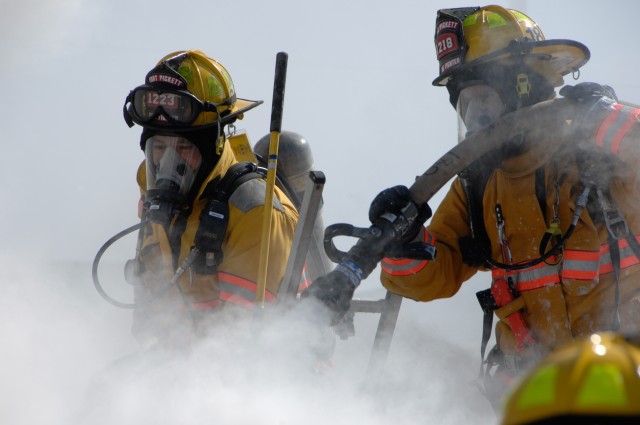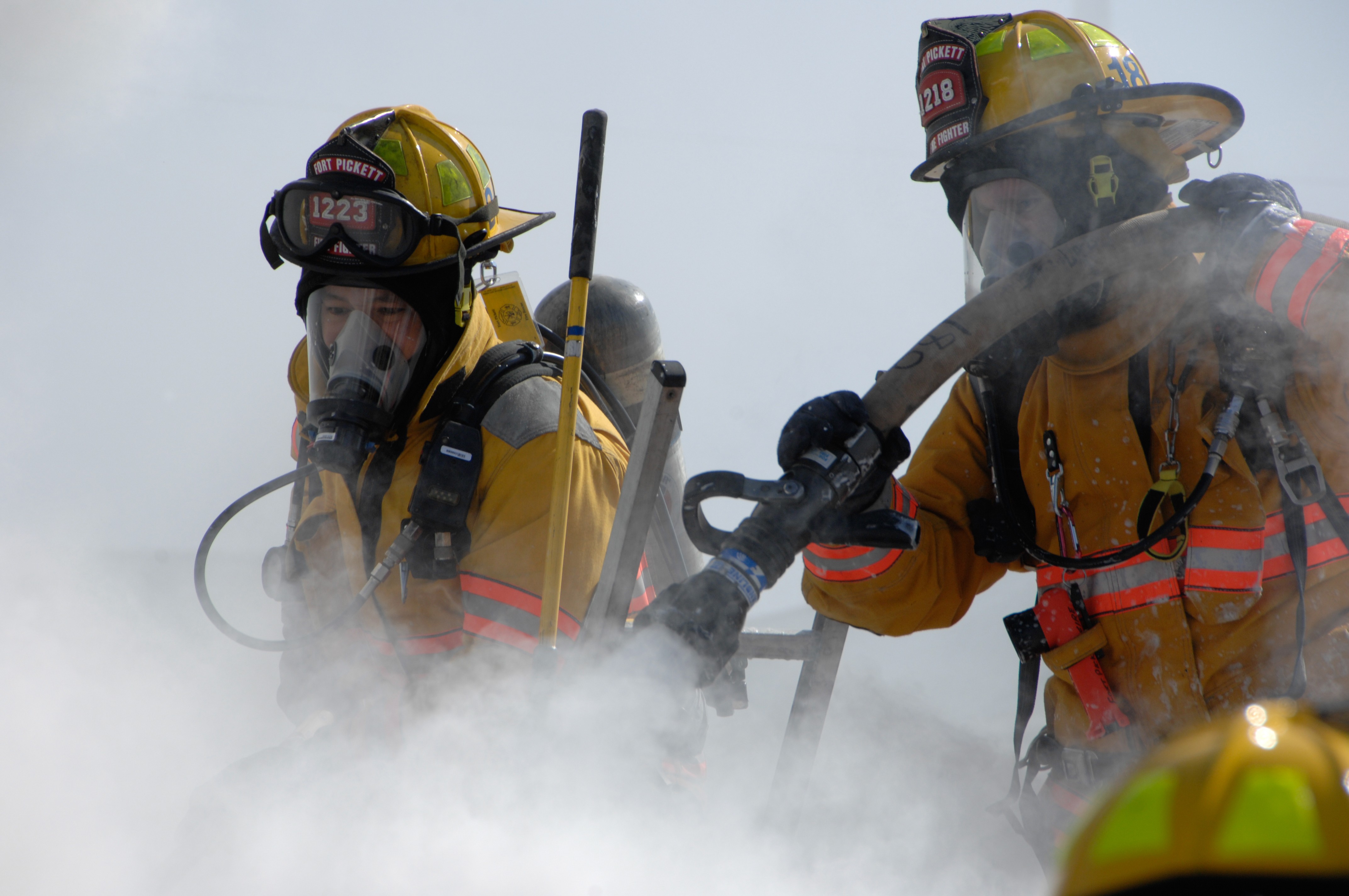SAN ANTONIO, Texas -- Installation Management Command safety officials have noticed a disturbing trend in recent fires and are increasing their efforts in reducing the number and severity of preventable incidents.
In 2009, IMCOM initiated an aggressive Fire Safety Campaign, focusing on fire safety awareness and education training, along with inspecting and ensuring smoke detectors' operability in all Army structures to include family housing. The campaign was successful as the number of fires and property damage declined significantly.
However, since the end of the 2009 Fire Safety Campaign, IMCOM has experienced an upward trend in unattended cooking fires in family housing on Army installations. Indeed, 56 structure fires have occurred since October 2009, with 33 (59 percent) of those being cooking-related in family housing. Additionally, there's been a recent rash of fires caused by lint build-up in clothes dryers.
IMCOM is again promoting fire safety by encouraging people to never leave cooking unattended. Overall, grease fires are the leading cause of preventable fires within Army family housing.
Residents are also encouraged to keep a fire extinguisher readily available. For those who do not know how to operate a portable fire extinguisher, safety officials suggest they contact their local fire department for hands-on training.
Residents of family housing and Soldiers living in barracks are also encouraged to follow manufacturer's recommendations on preventative maintenance for clothing dryers, and to clean out the lint trap on the dryer after each use.
IMCOM safety officials are also tracking what they call "an alarming number" of incidents where people have failed to report fires as quickly as possible upon discovery. These delays resulted in larger blazes with greater severity, increased property loss and risks to other building occupants and responding firefighters.
Accordingly, Army Regulation 210-50, Installations Housing Management, requires family housing residents to:
* Be familiar with fire precautions and take timely corrective actions to prevent fire hazards;
* Conduct voluntary self-inspections and monthly fire drills and establish an accountability location outside the housing for evacuating family members;
* Test installed smoke detectors quarterly;
* Provide a portable, hand-held, multipurpose fire extinguisher for permanent party housing when such housing is used as a family child care home under the provisions of AR 608-10;
* Know how to report fires;
* Attend command-sponsored briefings on actions to prevent fires in housings.
"Reports from the Fire Safety Administration indicate most home fires begin in kitchen areas," said Mario Owens, safety director of IMCOM. "Given the fast pace of life today, it is very easy to forget about something cooking or not remember to clean out lint from a dryer. Keep your family safe from home fires by having fire safety talks often with your family. Make it a practice to identify and eliminate fire hazards."
Furthermore, "Soldiers and family members not only need to be able to recognize and eliminate fire hazards, they also need to know how to promptly report a fire, ensuring fire and emergency services resources are dispatched promptly and hopefully fully aware of the situation before they arrive," added Steve Fant, IMCOM safety specialist.
Plus knowing how to escape a fire is just as important. Yet, only a quarter of U.S. households have planned and practiced a home fire escape plan, according to the National Fire Protection Association.
"Sometimes there are only seconds to escape and there's no time for planning during a fire emergency," said Gerald Adams, IMCOM fire protection specialist.
He recommended sitting down with family members and making a step-by-step plan for escaping a fire.
"Agree on a place outside your home where every member of the household can meet," Adams said, "and wait for the fire department to arrive. Once you are out of your home, don't go back inside for any reason. Having a plan that has been practiced saves precious time ... and lives."
Overall, IMCOM safety officials suggest practicing these preventable fire safety techniques: report fires immediately to the local emergency services, no matter how small; do not leave a stove unattended while cooking; clean clothes dryer lint vent after each use; practice your fire escape plan regularly; and test your smoke detector quarterly.
Contact the closest fire department or installation safety office for additional information on fire safety.


Social Sharing